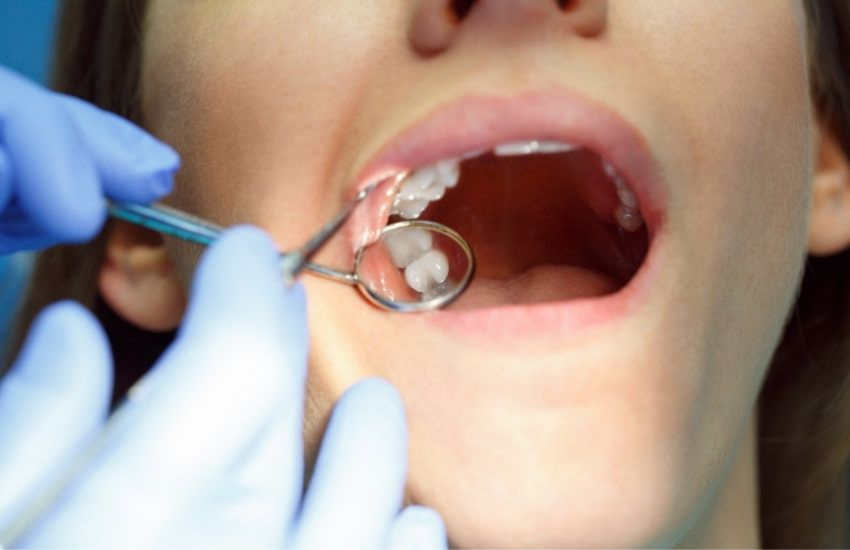
The third molars at the back of the mouth that usually comes in between the ages of 17 and 25 are what are commonly known as wisdom teeth. These teeth do not typically need to be removed if they are well-grown and cause no discomfort. You can also learn more on Suresmile vs Invisalign, for after you extract your teeth, by consulting with your dentist. However, there are cases where the wisdom teeth don’t grow in correctly and end up causing discomfort and problems for surrounding teeth. In such cases, a wisdom teeth extraction is usually recommended by the dentist. Let’s take a look at what a wisdom teeth extraction is below.
What is a Wisdom Tooth Extraction?
This is a surgical procedure carried out to remove one or more of a person’s wisdom teeth (the third molars or permanent adult teeth located at the back corners of the mouth). With X-rays images and scans of your jaw and mouth, your dentist can predict if you will have any issues with your wisdom teeth, and they will recommend that you have an extraction before those problems arise.

What to Expect During the Procedure
Any and all wisdom teeth extraction procedures should be carried out by qualified professionals like Sherwood Park Dental Practice. The procedure typically doesn’t take more than 45 minutes to an hour.
During the surgery, you will be given either an IV sedation, local or general anaesthesia, so the removal can be painless. Part of your gums or bone may be cut in order to get the wisdom teeth out, but it is not a cause for worry, as your doctor will stitch the wounds so they can heal quickly. Some bleeding is expected, so gauze pads will be stuffed into your mouth to soak up the blood. Because anaesthesia is used, it is recommended that you have someone with you to drive you home after the procedure.
You may experience some swelling and discomfort for 2-3 days after the procedure, but it should subside soon after. Your recovery should be fairly quick if you follow your doctor’s instructions correctly.
When is a Wisdom Tooth Extraction Necessary?
Impacted Wisdom Teeth- You may need to have an extraction if your wisdom teeth are impacted. This is because impacted teeth (whether fully or partially impacted) can cause serious oral issues. In cases where the wisdom teeth partially emerge, the gums may open up and it becomes easier for food particles and bacteria to become trapped, which ultimately puts other teeth at risk of getting cavities and other infections. A fully impacted wisdom teeth, on the other hand, may grow sideways and cause crowding-related issues.
Bite Complications- Some wisdom teeth tend to constantly press onto the gums and this can cause swelling, discomfort and chewing difficulties. The wisdom teeth may also push against the nearby molars, putting extra pressure on them and making it difficult to eat and carry out basic dental hygiene activities like brushing and flossing.
Increased Risk of Oral Infection- Because it is easier for food particles and bacteria to get trapped in the pockets that form in the gums due to impacted wisdom teeth, the risk of developing an infection becomes significantly higher. A lot of patients have been reported to experience gum sensitivity, sore throat, swollen lymph nodes and gum swelling before having their wisdom teeth extracted. So, your dentist is likely to recommend an extraction if they suspect that your wisdom teeth increase your chances of getting an oral infection in the future.

Orthodontic Considerations- The goal of many orthodontic treatments is to move teeth into a more desired alignment, and a very common cause for orthodontic concern is overcrowding, which is only made worse by the presence of wisdom teeth. Most dentists will recommend having your wisdom teeth removed if they will hinder other teeth from shifting into the ideal alignment during orthodontic treatments like Invisalign or teeth straightening.
When Not to Remove Wisdom Teeth
The removal of wisdom teeth is not always necessary, and some of the situations where it is okay to leave them in include; when they grow in completely and healthy; when they are positioned correctly; when they do not affect your bite, and when they can be cleaned properly with brushing and flossing.
Conclusion:
A wisdom teeth extraction is a procedure that can help you avoid all the issues that come with impacted and improperly emerging wisdom teeth. However, the procedure is not always necessary, and the best way to determine whether or not you need one is to talk to your dentist and get a full exam.




